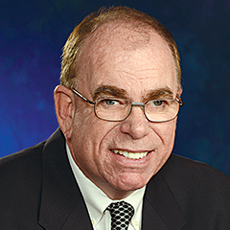
Some problems are so obvious we tend to not even notice them.
Take the labor challenges facing the senior living field today. When senior living operators huddle to discuss the matter, you can bet the usual laundry list will get aired, and probably in this order: 1) How do we find and keep good employees? 2) How do we offer competitive wages and benefits in such a tough operating environment? 3) How do we keep the labor shortage from getting worse? And of course, 4) How do we make sure nobody gets the crazy idea that unions are a good thing?
To be sure, those are very real and relevant issues. But in some ways, they are part of a larger problem that generally is ignored: the sector’s under-management epidemic.
Bruce Tulgan, who has written a boatload of books on management issues, discussed this challenge during the recent Argentum conference in San Diego.
Tulgan said that the problem extends beyond senior living, but it is definitely a challenge within senior living.
If it’s any consolation, Tulgan noted how it always has been hard to manage people, and that the task is becoming more difficult. Managers have no room for downtime or inefficiency. They are constantly being forced to do more with less. Employees are becoming more high maintenance than ever.
Amid these and other mounting headaches, many managers have adopted a hands-off approach based on leaving workers alone unless involvement is absolutely necessary. It’s not hard to see why. After all, there are many other matters to attend to. And who wants to be known as a micro manager?
The downside of this approach, however, is that problems always come up – and many times they are much larger than they had to be. The inevitable result, he noted, is that managers find themselves constantly putting out fires, instead of, well, managing.
A hands-off approach also breeds other negative consequences, he added. These include managers doing tasks that should have been delegated, people going in the wrong direction, average performers inaccurately seeing themselves as high performers, and high performers ready to bolt.
So what’s to be done? Tulgan said managers should embrace the following fundamental techniques:
- Manage people every day — spend more time with them.
- Talk like a performance coach — in a clear, direct and honest way.
- Focus on one person at a time — tune into that person and determine how to tailor your approach toward helping that person.
- Make accountability a process, not a slogan.
- Be sure expectations are vividly clear at all times.
- Track performance in writing every step of the way.
- Solve small problems early — before they escalate.
- Do more for some and less for others — doing more for people when they deserve it, finding ways to reward people in a fair, transparent way.
I know, easier said than done. But that’s the roadmap he offers.
Are these practices going to solve all your labor challenges? Hardly. But they will certainly make many of them easier to deal with. They will also help improve the caliber of your front-line employees – and the people who manage them.
John O’Connor is editorial director of McKnight’s Senior Living. Email him at [email protected].



